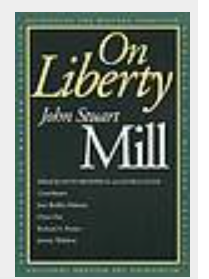Emile Durkheim on Morality and Society (Heritage of Sociology Series)

Buy online ($)
Type
Book
Authors
ISBN 10
0226173364
ISBN 13
9780226173368
Category
300-309 Sociology
[ Browse Items ]
Publication Year
1973
Publisher
Abstract
Publisher Comments
Emile Durkheim is best known in this country as a great sociologist and methodologist. Yet it was Durkheim's reflections on morality and society that spoke most deeply of his vital concerns. In his informative introduction to this work, Robert N. Bellah describes Durkheim as moralist, philosopher, theologian, and prophet, as well as sociologist, and the selections in this volume are representative of these aspects of Durkheim's many-faceted scholarship.
The first two selections of the volume set the context for the development of Durkheim's sociology of morality. Section I, "The French Tradition of Social Thought," gives Durkheim's picture of how his sociology is to be situated relative to the general French tradition. Section II, "Sociology and Social Action," shows Durkheim grappling with moral and political issues in his society and indicates the immediate social context of his thinking.
The remaining selections indicate some of the major substantive areas of Durkheim's sociology of morality. Section III, taken from The Division of Labor in Society, demonstrates his basically evolutionary approach to the development of moral norms in society. Section IV, "The Learning of Morality," gives examples of Durkheim's work on socialization. Section V, "Social Creativity," deals with the important question of how new moral norms arise in society.
About the Author
Robert N. Bellah is Elliott Professor of Sociology at the University of California, Berkeley.
Emile Durkheim is best known in this country as a great sociologist and methodologist. Yet it was Durkheim's reflections on morality and society that spoke most deeply of his vital concerns. In his informative introduction to this work, Robert N. Bellah describes Durkheim as moralist, philosopher, theologian, and prophet, as well as sociologist, and the selections in this volume are representative of these aspects of Durkheim's many-faceted scholarship.
The first two selections of the volume set the context for the development of Durkheim's sociology of morality. Section I, "The French Tradition of Social Thought," gives Durkheim's picture of how his sociology is to be situated relative to the general French tradition. Section II, "Sociology and Social Action," shows Durkheim grappling with moral and political issues in his society and indicates the immediate social context of his thinking.
The remaining selections indicate some of the major substantive areas of Durkheim's sociology of morality. Section III, taken from The Division of Labor in Society, demonstrates his basically evolutionary approach to the development of moral norms in society. Section IV, "The Learning of Morality," gives examples of Durkheim's work on socialization. Section V, "Social Creativity," deals with the important question of how new moral norms arise in society.
About the Author
Robert N. Bellah is Elliott Professor of Sociology at the University of California, Berkeley.
Description
Table of Contents
Preface
Introduction by Robert N. Bellah
I. The French Tradition of Social Thought
1. Sociology in France in the Nineteenth Century
II. Sociology and Social Action
2. Address to the Lycéens of Sens
3. The Principles of 1789 and Sociology
4. Individualism and the Intellectuals
5. The Intellectual Elite and Democracy
III. The Evolution of Morality
6. Progressive Preponderance of Organic Solidarity
7. Organic Solidarity and Contractual Solidarity
8. Division of Labor in Society: Consequences
9. Division of Labor in Society: Conclusion
IV. The Learning of Morality
10. The Dualism of Human Nature and Its Social Conditions
V. Social Creativity
11. Origin of the Idea of the Totemic Principle or Mana
12. Elementary Forms of Religious Life
Preface
Introduction by Robert N. Bellah
I. The French Tradition of Social Thought
1. Sociology in France in the Nineteenth Century
II. Sociology and Social Action
2. Address to the Lycéens of Sens
3. The Principles of 1789 and Sociology
4. Individualism and the Intellectuals
5. The Intellectual Elite and Democracy
III. The Evolution of Morality
6. Progressive Preponderance of Organic Solidarity
7. Organic Solidarity and Contractual Solidarity
8. Division of Labor in Society: Consequences
9. Division of Labor in Society: Conclusion
IV. The Learning of Morality
10. The Dualism of Human Nature and Its Social Conditions
V. Social Creativity
11. Origin of the Idea of the Totemic Principle or Mana
12. Elementary Forms of Religious Life
Biblio Notes
Document Type: Book
All Authors / Contributors: R N Bellah
ISBN: 0226173364 9780226173368
OCLC Number: 800457138
Description: lv, 244 p 21 cm.
Series Title: The heritage of sociology.
Number of Copies
1
| Library | Accession No | Call No | Copy No | Edition | Location | Availability |
|---|---|---|---|---|---|---|
| Main | 17 |
301.092 DUR Sociolo |
1 | Yes |




